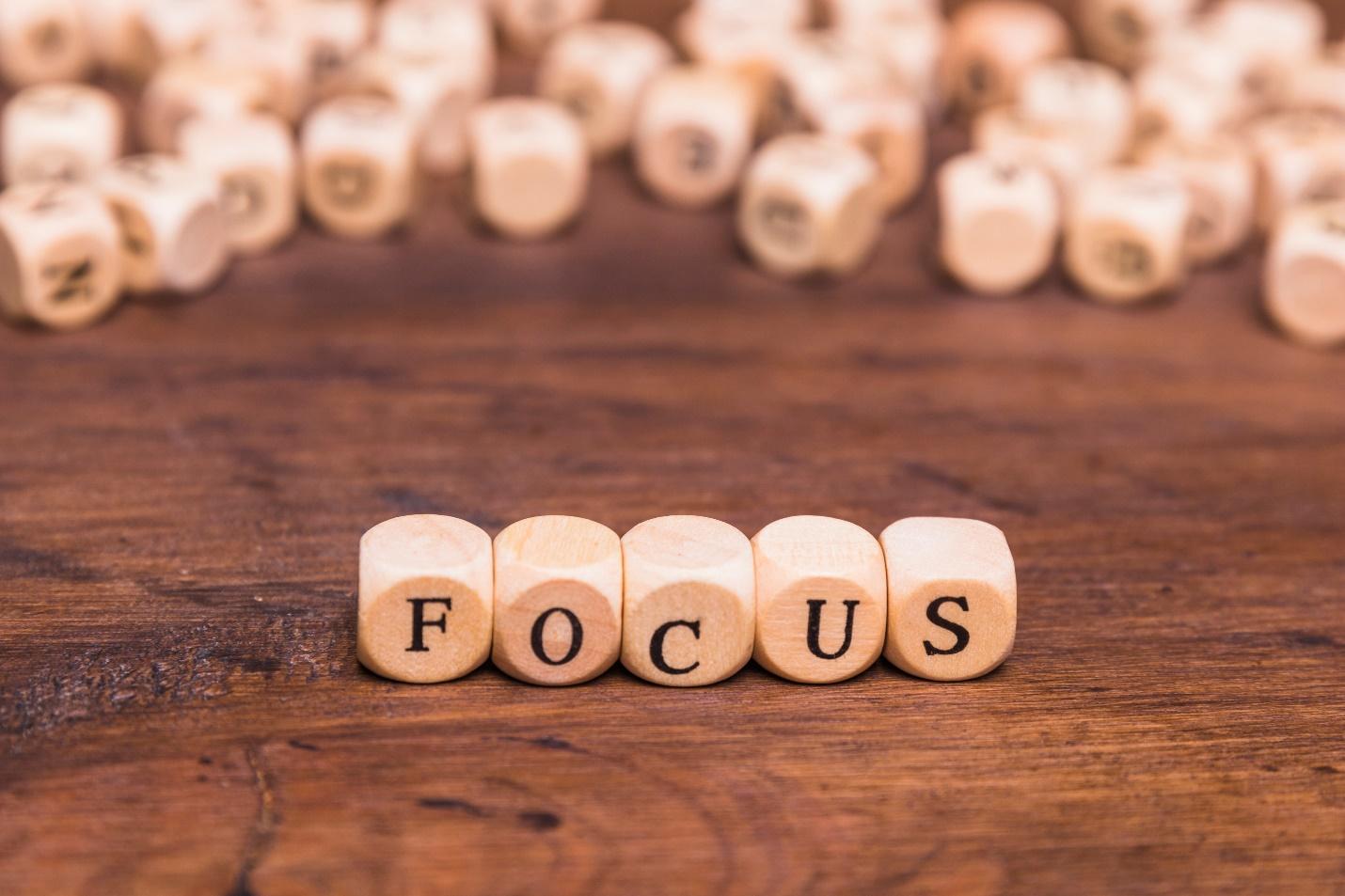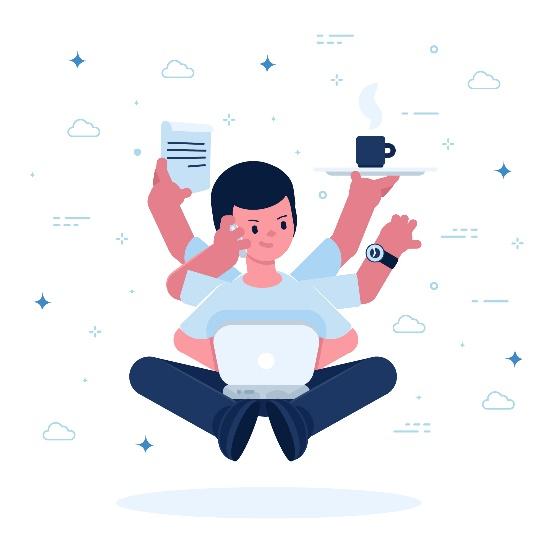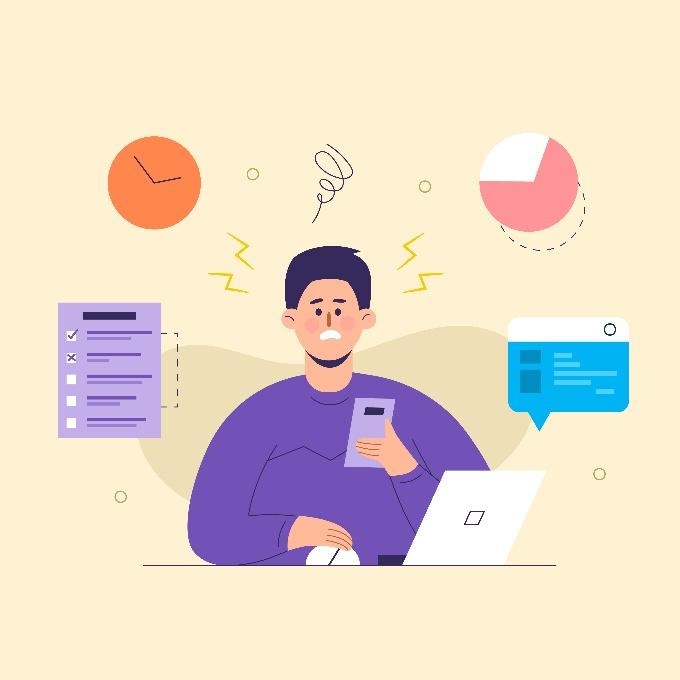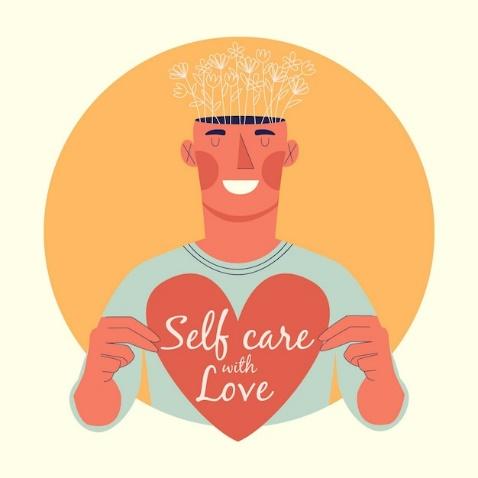If you don’t know where you want to go, then it doesn’t matter which path you take.
― Lewis Carroll, Alice in Wonderland

Summary
If your attention span is too low to stay focused, if you get confused between ‘concentration’ and ‘focused,’ if you are looking for tips to increase your focus or concentration, then this blog is for you. This article will introduce you to the word ‘focus,’ to help you better understand the reasons behind people losing focus, ways you can increase your focus, and much more. So, let’s begin!
- What is ‘focus’?
- Why concentrate or focus?
- Concentration and focus are different?
- Why can’t I focus?
- How to stay focused?
- How to increase the attention span?
- How to improve memory and concentration?
- Focus on yourself
What is ‘focus’?
The word focus originated from the Latin word focus, which means “hearth” or “fireplace.” The ancient Romans used to sit around the hearth and talk about important matters of state and politics. This is where we get the saying, “focus on the fire, not the ash.” The original meaning was concentrating on something so intently that it glowed like a fire. Focus is about being in the present moment, seeing things clearly, and acting on what you want to achieve. To act on your purpose, you need to Have a clear vision of where you want to go and make decisions based on that vision.
The word focus means to direct one’s attention or efforts toward a specific task, goal, or purpose. Focus is about being completely immersed in what you are doing and not letting anything else distract you from it. Focus is a state of being it’s something that you must work at and maintain over time. One could show signs of being focused if:
- They are immersed in reading a book without getting distracted by the added need to re-read a few paragraphs.
- They can watch a movie or television without scrolling through their phone.
- They are mentally and physically present, listening and responding during the in-person conversation without getting distracted by their environment or phone.
- They can work despite coworkers engaged in some conversation around them.
- They can set their priorities right amongst multiple goals.

Why concentrate or focus?

Focus is an essential part of life. Without focus, it isn’t easy to achieve anything. There are many examples where we’ve lost our focus and let something else come into the foreground instead. Maybe you were in the middle of a project at work, and your boss called you into his office to do something that wasn’t related but took more time than you had available. For someone to be more productive, focus is essential in your life. Focus is a way of being, a state of mind that can be strengthened and developed with practice. Below are some of the benefits of being focused:
- Higher productivity: Being focused helps one build a flow and drives them to complete tasks at a faster pace. This could happen as the flow of thoughts remains continuous, feeding into the next associated job.
- Increased motivation: Focus helps one achieve their goals at a higher satisfaction level and much faster, automatically increasing the motivation level.
- Stress reduction: When everything falls into the right place, the chance of getting stressed is lower. The higher the focus, the lesser pending the work as turnaround time is comparatively lower hence stress is lower too.
- Quality work: On being focused for a sustained duration, the chances of the quantity, as well as the quality of work improving, is higher. For example, if you were able to write a blog for a period of 30mins earlier, with sustained focus, the duration could increase to 2 hours and a more significant number of blogs.
- Increased leisure time: This could come as a perk of being more focused, leading to being more productive hence completing your priorities earlier.
Concentration and focus are different?

Yes, they are different. If we look at the meanings – Concentrate: To focus on one thing, often at the expense of others. Focus: A state of being that involves concentration and attention. Concentration is a state of mind focused on one thing and nothing else. For example, if you’re reading this article, you concentrate on it, and nothing else distracts your attention. Focus is a way of being where you have many things going on, but they don’t distract from what needs to be done at any given time.
You can be focused without being concentrated, but you can’t be concentrated without being focused. In other words, the focus is more than just concentration. You can be so focused on something that it consumes all your attention and leaves nothing for anything else; this is called tunnel vision. For example, if you’re reading this article and listening to music, you are focused. You have both things going on simultaneously, but neither distracts from what needs to be done at any given time.
Why can’t I focus?

You might be asking yourself this question because you’re having trouble concentrating on something. Maybe you’re trying to read a book and find that your mind keeps wandering off onto other topics. Or maybe you have a lot of things going on at once, like listening to music while doing work or scrolling social networking sites while preparing for an important meeting. When this happens, we tend to think that our brains are not working properly; there must be something wrong with them! But it’s quite normal for our minds to wander from time to time when we try to focus on something specific.
This question might arise because you’re having trouble concentrating on something. Maybe you’re trying to read a book and find that your mind wanders onto other topics. Or perhaps you have a lot of things going on at once, like listening to music while doing work or scrolling social networking sites while preparing for an important meeting. When this happens, we tend to think that our brains are not working correctly; something must be wrong! But it’s pretty standard for our minds to wander from time to time when we try to focus on something specific.
Harvard Business Review (HBR) article mentioned a compelling reason behind us being unfocused – “Research also shows a downside to it: excessive focus exhausts the focus circuits in your brain. It can drain your energy, make you lose self-control, impair decision-making, and make you less collaborative”. In other words, when you try to focus on something for an extended period without taking breaks, your brain becomes exhausted and unable to process the information in front of it. It’s like a computer that has run out of RAM: no matter how hard you push the buttons, nothing happens!
Here are some reasons behind someone feeling less focused:
- High stress and anxiety – as one could continue being caught up in the whirlpool of thought or overthinking the reasons causing them stress and then leading to pressure.
- Distractions – the environment might be noisy or unfamiliar, diverting attention and hampers concentration & focus.
- Lack of sleep OR physical activity or interest – brain functions slow when someone has slept well or is disinterested in the task. Similarly, physical activity helps the better flow of oxygen in our brain, making us think faster. One might feel more distracted or inattentively performing functions in case of lack of sleep, physical activity, or interest!
- Eating habits – researchers have shown that food that takes longer to break down in our body or when we have meals after a long gap makes us sleepy as the energy is spent on digesting instead of performing physical activity.
- Health issues like ADHD or insomnia – some of us might have ADHD (attention deficit hyperactivity disorder) or insomnia (sleep disorder), which can be treated only once diagnosed.
As humans, we all might have this problem; it’s a common human experience. An article by Harvard Business Review (HBR) suggests that when we try to focus on something specific, our brains may wander off to other thoughts by default. This happens because our brain is wired to be curious and wants to learn new things. A study conducted by psychologists at the University of Washington has shown that our brains get bored easily, even when doing something interesting!
How to stay focused?

“Your brain’s executive function helps you plan, make decisions, and — perhaps most important — pay attention,” says Dr. Joel Salinas, a neurologist with Harvard-affiliated Massachusetts General Hospital. “It acts much like the captain of the ship.” – from an article by Harvard Health Publishing – Harvard Medical School.
The captain must be calm and composed for the ship to sail smoothly. Below are some of the proven ways to stay focused:
- Sleep well: The front part of our brain is called the prefrontal cortex, which is responsible for processing information and making decisions. Many types of research have proven how irregular sleep cycles or sleep deprivation slows down this area. Hence, 6 to 7 hours of deep sleep is recommended for any adult. Well, a rested brain and body are more productive after all. Here are a few tips on the ways you can improve your sleep quality:
- Exercise, go for a walk, and meditate to clear your mind at least four hours before sleeping.
- Take a warm bath and use essential oils – it calms us down.
- Eat your dinner at least two hours before sleeping.
- Turn off your TV, laptop, mobile data, and Wi-Fi at least an hour before sleeping.
- Before sleeping if you read a book or listen to music, it might help you get to a regular sleep cycle to build a sleep rhythm.
- Eat well and stay hydrated: The suggestion to eat healthily and avoid oily food is not new to us. The food, which takes a long time to break down in our body, makes us feel sleepy, making it difficult to concentrate and impacting our attention span. The best is to avoid processed and sugary food and instead eat it. This article contains a list of eleven healthy food items which can boost our brain and memory. Considering the human body is made up of seventy percent water, which helps blood and oxygen flow in our brain. The lesser the hydration, the less the flow, and the slower our cognitive skills get. Psychology today contains proven research on how drinking water may improve our decision-making.
- Train your brain: Like a fit body, we need to eat well and exercise to grow muscles; for our brain to stay healthy, we need to train it. When played consistently over time, different kinds of games like puzzles, sudoku, memory games, and chess improve our thinking speed and skills. Learning any new skill like painting, cooking, or learning a new language stimulates our brain and keeps it engaged and motivated. The by-product is stress reduction!
- Train your body: We all have heard of this proverb, “Healthy mind prevails in a healthy body” hence training the brain and body are both important. Exercising regularly releases happy hormones, which reduce stress, refresh our brains, and make us more focused.
- Chunk your work v/s multitasking: Our attention span is declining daily; hence, it is recommended to divide your work into small chunks, which can be done with breaks instead of trying to complete all the tasks together, i.e., multitasking. When we multitask, our focus is also divided into all the tasks hampering the quality of the work. But when we aim to achieve one mission at a time, the focus is undivided on that one task at a time.
- Control distractions: With the environment getting updated with gadgets, the population, and electronics around us, the number of things and people to disturb us has also gone up. The best way is to turn off the notifications on your cell phone, choose a room to work which is quiet and inform the people around not to disturb you, explaining its impact on your focus and work.
- Socialize OR take a break! Sometimes all work and no play make our brain dull and out of focus. Then if you are a social person who enjoys the company of family or friends, step out! Meet them, spend quality time, and it will refresh your thoughts. If you are a ‘do nothing’ person, then take a break. Pausing our work for these two activities will only help restore and gather energy to work with a fresh set of mind and focus.
How to increase the attention span?

Attention span is the duration for which one concentrates and focuses before getting distracted. It can be different for different people. As per this article, a couple of years ago, a study by researchers of Denmark Technical University proved that the global span of attention span is decreasing every year due to the amount of information presented in public.
What happens if our attention span is lower?
- One might make more mistakes as they miss the minute details while working on something.
- They might look impatient and uncaring as they cannot engage in a conversation wholeheartedly.
- Such a person might not stick around the timeline to finish a task and appear lazy.
- A complex task might appear tough to such a person as it requires more attention. Hence, they might be traumatized even before a job is allocated.
It is essential to identify symptoms and reasons for low attention span so that you do not face the abovementioned challenges:
- Not paying attention to details hence ending up making reckless mistakes.
- Difficulty in reading long texts or for a longer duration.
- Not able to listen to the complete conversation and to intervene or seem not to listen.
- Unable to complete any task.
- Inability to stick to timelines or organize things.
- Not remembering about meetings, jobs, or any appointments.
There could be various reasons one has a lower attention span – anxiety, depression, learning or sleeping disorder, PTSD (Post-traumatic stress disorder), ADHD (Attention-deficit hyperactivity disorder), etc.
How do improve memory and concentration?

If you search, the wiki has an elaborate list of ways to improve attention span. It is equally important to find out ways to improve memory and concentration. This research paper proves “The Relationship between Attention and Working Memory.” Attention span impacts the way we decode the information around us, perception, and short and long-term memory of that information. It also affects the experience we remember. Try and recall a recent experience you enjoyed the most and the last task you completed because you had to meet and see for yourself!
So how can one improve their memory and concentration? Both are interconnected; hence if you can improve your memory, it can help improve your engagement.
Here are the top 5 ways to do so:
- Be mindful and do meditation – Practicing mindfulness involves focusing on the present while being aware of your surroundings and can be practiced in any situation. Meditation is a kind of formal activity practiced in a particular format. However, both also help in calming the nerves and focusing better.
- Sleep well – this helps refresh the memory and increases the concentration level. Some also suggest power naps whenever one feels sleepy to increase productivity.
- Add physical activities to your routine to maintain moderate body weight. Body mass index needs to be in balance, and only physical activities can help in the same. Examples: walking, running, gym pieces of training, dancing, etc.
- Eat less white sugar and salt – it will help strike the right balance in cognitive memory. As per this study, excess sugar consumption has been linked to Alzheimer’s disease (AD).
- Increase intake of fish or fish oil supplements – various studies have proven that fish or fish supplements have helped improve memory, especially in the older generation.
Focus on yourself

Some believe that the habit of focusing better can be improved if one learns to focus on themselves. In today’s digital age, focusing on themselves could sound challenging when most people suffer from FOMO (fear of missing out) or are busy doing things to please their loved ones.
When was the last time you practiced mindfulness, questioned your present, and focused on yourself? If you have the answer, it indicates that you know how to give yourself time and importance. If not, you might be thinking of it as a ‘selfish’ act; however, the reality is, that we understand our needs better, and in return, we can able to focus on others much better.
What are the other benefits?
Acknowledging development areas – the more we think about ourselves, we have a better understanding of our strengths, weaknesses, and development areas. You can take three simple steps to take out time for self-reflection:
- Step 1 – Write a daily gratitude list in a diary.
- Step 2 – Setting challenges to try something new.
- Step 3 – Listing and develop areas you identify in the second step.
Taking out’ me time to refresh your focus – we often forget this in our busy schedule and hustle! It is essential to take care of the family and equally for self. Again, based on personal preference, you can:
- Get a massage every week.
- Go for a daily nature walk.
- Go with friends for an outing.
- Exercise or meditate
- Do something that makes you happy.
Be kind to yourself on failing – we tend to criticize ourselves when we die. However, we learn more when we forget as we try alternative solutions. Being kind to yourself and doing positive self-talk whenever such a situation arises is the best way forward!
We hope now you have the necessary tips and ideas to increase and maintain your focus. Once you master this skill, your performance at work will improve, which will ripple effect on your job satisfaction. When you are more satisfied at work, you will find it more valuable, and slowly the positivity will trickle down to your personal life. You will be able to strike a balance between completing your work and finding time to spend with your loved ones!


